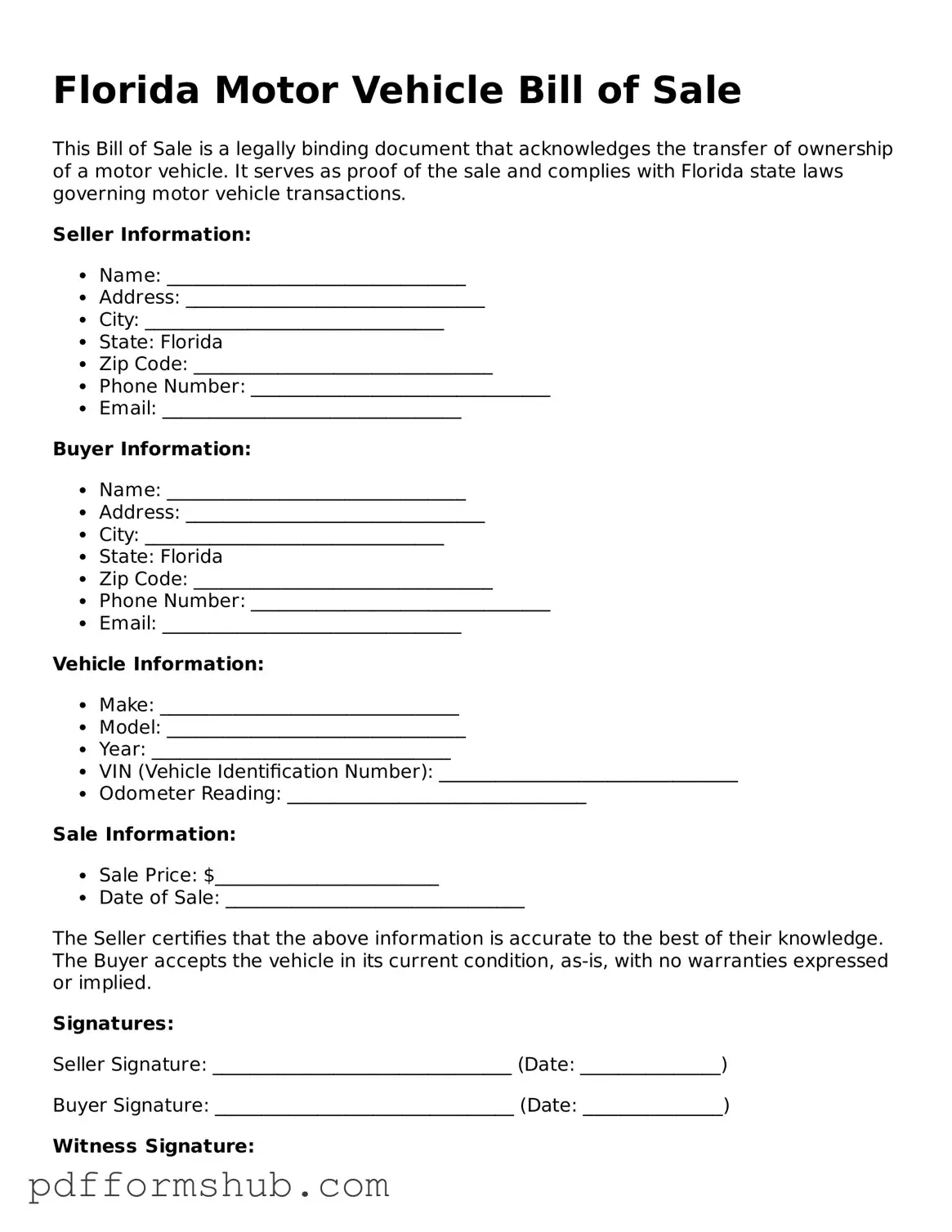Attorney-Verified Motor Vehicle Bill of Sale Form for Florida State
The Florida Motor Vehicle Bill of Sale form is a legal document that records the sale and transfer of ownership of a vehicle in Florida. This form provides essential details about the vehicle and the buyer and seller, ensuring a smooth transaction. Ready to get started? Fill out the form by clicking the button below.
Customize Form

Attorney-Verified Motor Vehicle Bill of Sale Form for Florida State
Customize Form

Customize Form
or
Free PDF Form
Short deadline? Complete this form now
Complete Motor Vehicle Bill of Sale online without printing hassles.